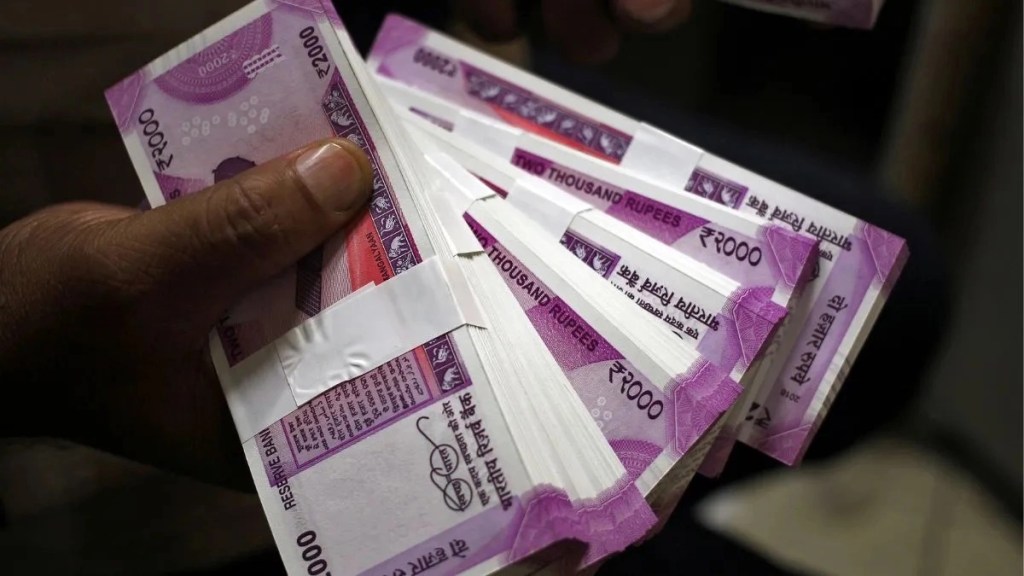By Rajesh Mehta and Tanya Nagpal
As the nation entered its 75th year of independence, Prime Minister Modi vowed to move India out of its old and rustic era into a new and dynamic echelon. In the pursuit of this paradigm shift, our country has seen policy reforms and technological advancements which have strengthened India’s brand image across the world. The new and aspirational India has benefitted massively from digitalisation and infrastructure developments in the tertiary sector and water reforms in the primary sector. Consequently, the country has grown by leaps and bounds in its quest toward an aspirational New India.
However, as per critics, the finance ministry’s recent moves such as including international credit card transactions under the liberalised remittance scheme (LRS) which takes effect from 1 July 2023 and discontinuing Rs 2,000 currency notes with effect from 30 September 2023, are detrimental to the idea of Modi’s New India. According to experts, these policy changes are aimed at disrupting the status quo of the economy without any promise of long-term benefits.
Every year, India’s union budget is presented on 1st February to be implemented from 1st April onwards for a period of the next financial year. As the year progresses, the government makes amendments to current laws and policies, in addition to the union budget already passed by both houses of Parliament. Such amendments or changes to the finance policy after the designated timeline of the budget are usually justified since they are in response to the sudden changes in the global economic environment or any other unforeseeable circumstances at the time of the union budget presentation.
However, the recent changes by the Finance Ministry seem to be simply due to a lack of careful and timely discussions and delayed deliberations as these could have easily been included within the FY 2024 fiscal budget presented by the Union Finance Minister on 1 February 2023. These changes were announced just a week after the conclusion of Karnataka state elections and UP local body elections, making the announcement timings questionable.
When faced with criticism, the Finance Ministry justified their move as an attempt to trace dubious foreign transactions by collecting a 20% tax collected at source (TCS) on credit card spending and a way to curtail corruption by discontinuing Rs 2,000 currency notes. It also stated that the tax should not be a financial burden since it can be claimed as a tax credit with income tax returns, without realising the procedural inconveniences it will cause to the common man in collecting the tax refund that they initially did not owe.
Such announcements are usually followed by a frenzy of confusion, fear, and apprehensions among the residents, primarily the poor and the middle class, about how the new rule will change their lives. Case in point, the announcements in the last week caused earthquake-like tremors in the lives of the poor population. The news of Rs 2,000 notes being discontinued flashed a familiar trauma in the not-so-affluent strata who had excruciatingly suffered during the infamous demonetisation of 2016.
One cannot help but notice the dichotomy of the Indian economy. In a 2022 court hearing, Solicitor General Tushar Mehta said that Rs. 49,000 crores siphoned off in financial crimes by Vijay Mallya, Nirav Modi, and others are yet to be returned to the banks. On one hand, the national authorities seem to be taking no significant steps to get hold of billionaire fugitives owing over Rs. 50,000 crores to the national treasury. On the other hand, law-abiding and tax-paying citizens are forced to face the tax burden of futile laws such as 20% TCS on credit cards for their simple wishes like remitting living and sustenance expenses to their children studying in foreign locations.
Even one of the government’s biggest supporters, Mohandas Pai, former CFO of Infosys, in his recent article in the Indian Express called the move of including credit cards under LRS “an instance of using a sledgehammer to solve a problem that needs finesse”. He added “In 2014, the BJP made a promise to stop “tax terrorism”. In 2014, the total amount in dispute as per the budget was around Rs 4.50 lakh crore. According to the latest information, this has gone up to around Rs 12 lakh crore. Clearly, disputes have arisen and there has not been much movement on ending tax terrorism.”
It is high time that the government realises that minor policy changes like introducing new taxes that can be claimed later and toying around with the applicability of currency denominations will do very little to help the country’s economic situation in the face of a prospective recession. When the world around us is beleaguered with unemployment stress and pink slips, a paradigm shift with remarkable consequences on a macroeconomic level, and not the micro fidgeting, is the need of the hour to keep the country in the pink of its health. The short-term measures will neither solve corruption nor improve the ease of doing business.
(Rajesh Mehta is a leading international consultant in the field of Market Entry, Innovation, and Public Policy. Tanya Nagpal is an audit executive in a Big 4 firm. Views are personal.)

